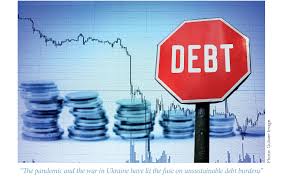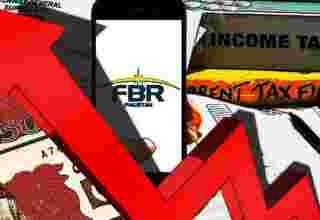ISLAMABAD, Nov 03 (INP-WealthPK): The government of Pakistan has been urged to adopt balanced exchange rate and taxation policies to promote exports and avoid the balance of payment crisis in the future, WealthPk reports.
Noted economist Sakib Sherani told WealthPK that Pakistan needed a balanced exchange rate policy to handle the current economic situation in a better way. The policy should be framed on the bases of demand and supply mechanisms, he added.
Pakistan’s economy has entered into a J Curve, which shows how a currency depreciation causes a trade imbalance followed by a substantial improvement.
He said that the ongoing recession at the global level particularly in European countries would affect exports but Pakistan’s imports would decrease in the future to improve the balance of payment situation.
Sakib Shernai said that government should avoid strengthening the rupee against the dollar through artificial mechanisms. He added that Pakistan could afford to strengthen the rupee by spending dollars due to its low level of foreign exchange reserves.
“The government thinks that fixed exchange rate policy is a better option but it should also consider the problems which it creates for the economy. Overvaluation of the rupee against the US dollar will disincentivise the exporters and subsidise the importers. As a result, exports will decrease and imports will increase, contributing to the balance of payment crisis as witnessed in the previous tenure of the ruling party,” he said.
The expert said that although the government adopted a better policy against the speculators, who were involved in putting pressure on the rupee, it indicated that the exchange rate would be brought below Rs200.
“It will not be the right approach if it is achieved artificially by ignoring economic fundamentals. It will not only create negative consequences for the economy but can also create friction with the International Monetary Fund (IMF),” he said.
He said that the government was burdening exporters and industry through taxation due to the IMF programme and the flawed exchange rate policy. The government should also balance its tax policy for traders, he added.
“The government needs to review its policies to promote exports and industry. The pressure on the export sector through flawed exchange rate and taxation policies and uncompetitive energy rates will ultimately create the balance of payment crisis,” said Sakib Sherani.
He said that the government should not devise tax and exchange rate policies for political gains. Those policies should be framed by only considering the interest of the economy, he added.
He told WealthPK that Pakistan should not restrict essential imports and delay payments to Independent Power Producers (IPPs) and contractors because it would create unintended adverse consequences in the future. He added that government should clear its policy about the rehabilitation of flood victims.
According to the latest official report of the ministry of finance, the current account posted a deficit of $2.2 billion in the first quarter of the current fiscal against $3.5 billion in the corresponding period of the previous financial year.

























